Like every great city, an uninterrupted water supply is a necessity.
One crucial aspect of Sunway City Kuala Lumpur’s status as a smart sustainable city is actually in our own backyard.
After six million years of inhabiting planet Earth, we have yet to fully comprehend the amazing element that comprises 75% of it – water!
“The capacity of a population to safeguard sustainable access to adequate quantities of acceptable quality water for sustaining livelihoods, human well-being, and socio-economic development, for ensuring protection against water-borne pollution and water-related disasters, and for preserving ecosystems in a climate of peace and political stability,” Water security, as defined by the United Nations.
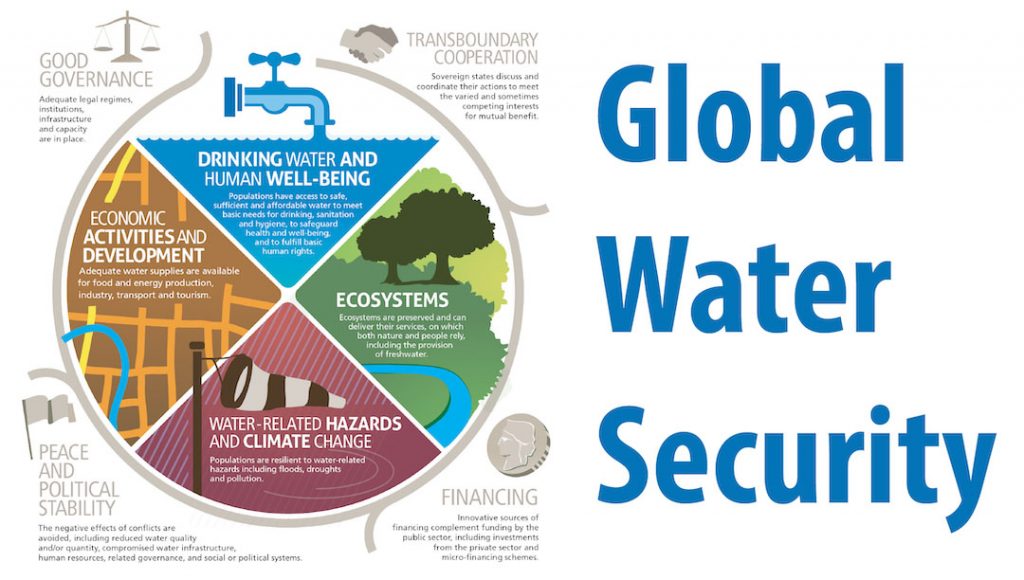
Source: United Nations Water
The importance of water cannot be understated – it is central to achieving a larger sense of security, sustainability, development and human well-being. Due to this, the UN supports the inclusion of water security in the post-2015 development agenda as part of the United Nations Sustainable Development Goals (UN-SDGs). Thus, water security encompasses a diverse range of issues such as clean drinkable water for all, water for economic activities and developments, containment of water-related hazards and water towards ecosystems and climate change.
Unfortunately, water security in our modernistic society seems more utopia than reality. In a global scale, many parts of the world are facing different issues, some have infrequent, sparse or even inexistent access to clean water – leaving people high and dry. On the flipside, some may have an access to water that is not fit for consumption due to substandard treatment infrastructure. To put it simply, water security is a global issue.
Another aspect in water security is when the entire inhabitants of a nation have sustainable access to adequate quantities of acceptably clean water. Sadly, BBC states that the globe’s water supply and consumption are unequal, with about 80% of the world’s population living in areas where the fresh water supply is not secure.
For some countries with potent water source however, it needs to be managed strategically. One such strategy are dams. Numerous countries such as China and the United States conserve water for people through reservoirs and dams. Though they work wonders for people, it does not for nature. Whilst storing water, providing renewable energy and preventing floods are all laudable traits that comes with it, the circumstances of it are damaging.
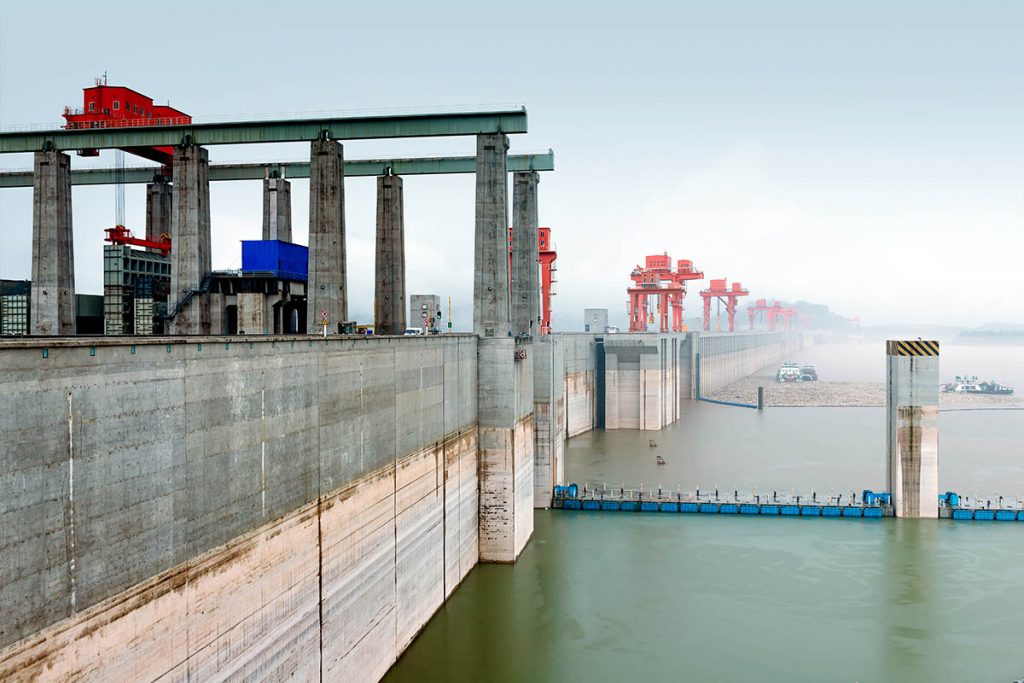
Three Gorges Dam, China
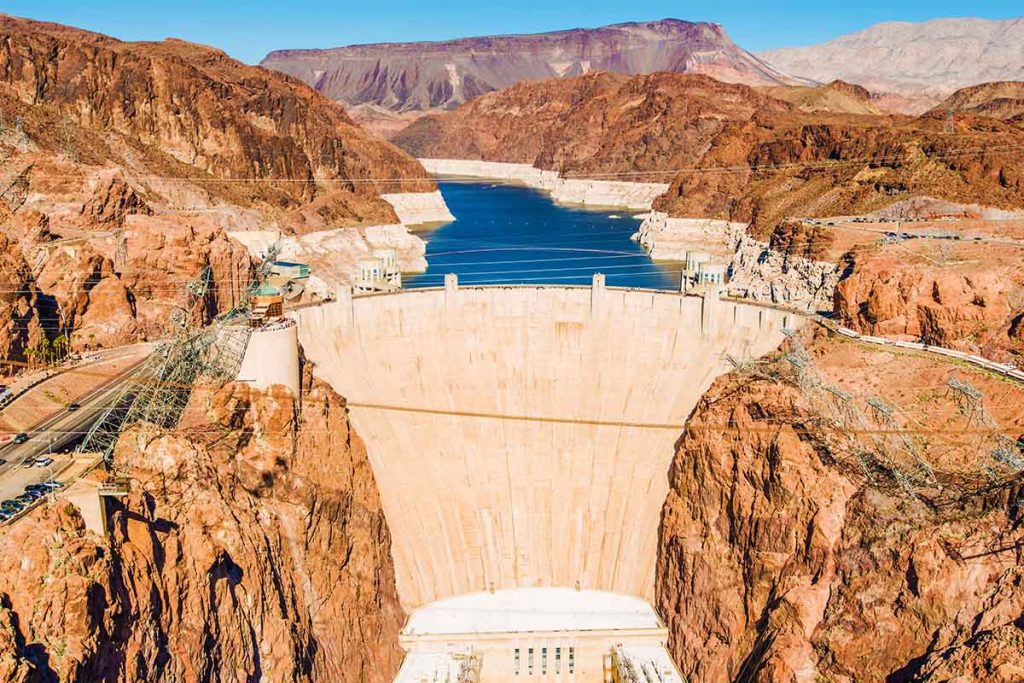
Hoover Dam, USA
Dams worsen a host of other environmental and societal issues such as the impact of climate change, destroy carbon sinks in wetlands and oceans, deprive and destroy the nutrients in which its ecosystem depends on, ruin homes of animals, increase sea levels and displace poor communities. Thus leading to a “one step forward, two steps back” scenario.
However, dams are not the be-all and end-all to address water security. Other countries have found other sustainable methods in preserving on this precious resource more efficiently for the community.
One such country is Singapore. According to Channel News Asia, they have taken strides into enlarging water catchment areas, upgrading infrastructure and diversifying sources through NEWater and desalination. In Japan, Fukuoka City learned much from the severe drought of 1978 which deprived 3,280,000 people and many businesses of a stable water supply for 287 days. In response to that experience, Fukuoka City developed water conservation guidelines and urged the collaborative effort of citizens, businesses and the city to achieve an efficient water supply through leakage minimisation, wastewater recycling for non-potable use, promotion of water-saving technologies, and public awareness-raising.
Whilst water sustainability is a global concern, it has also been a Malaysian concern as well. Some may argue that “water insecurity” has been the story of Selangor’s year in 2020, with water disruptions becoming the byword. Throughout the year, there have been eight cases of water disruptions. Whilst these inconveniences have been fixed thoroughly every time, with disruptions only lasting to a maximum of two days, it has been a persistent issue.
SMART SUSTAINABLE WATER
When people think of smart sustainable cities, one thinks of innovation, technology, grandeur and design. But one important facet to a smart sustainable city is actually utilise what it already has in its foundation. Not just about building the latest eco-friendly infrastructure, but also on being resourceful and tapping into what you already have to create value.
For Sunway, we have one particular asset that has float Sunway’s boat over the past few decades.
We have all heard the rhetoric – Sunway City Kuala Lumpur being built on a tin mining wasteland, refurbished and recultivated to a wonderland – with a lofty dreamscape of flora and fauna cocooned in a fully integrated township. But at foundation of Sunway City Kuala Lumpur are our two lakes – one at Sunway South Quay and the other at Sunway Lagoon, their function akin to a heart in a body, bestowing life to the city.
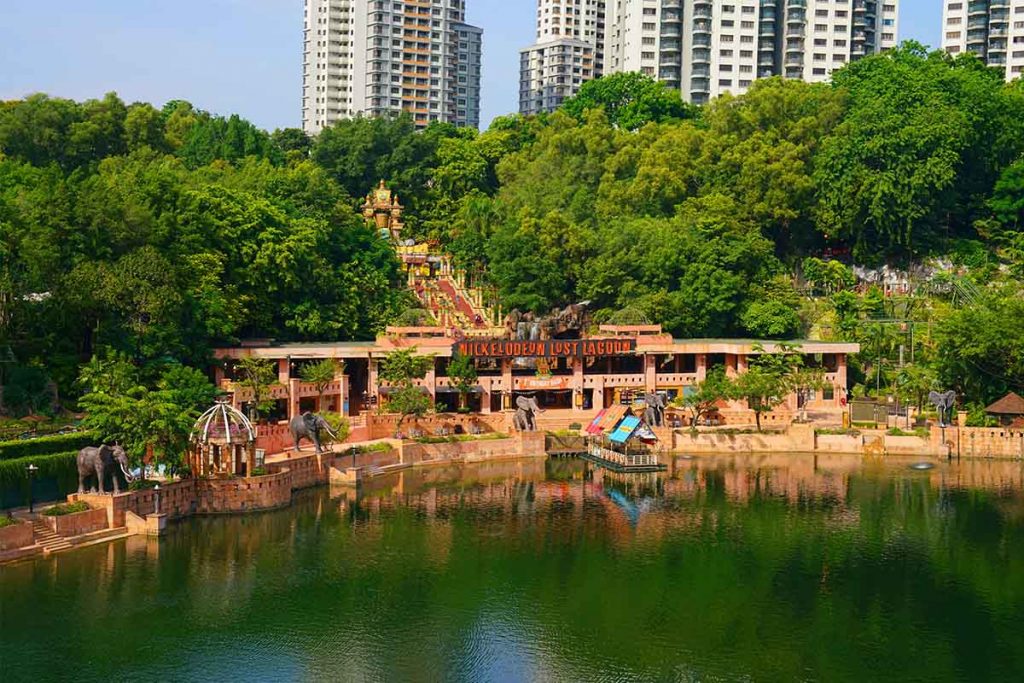
Sunway Lagoon Lake
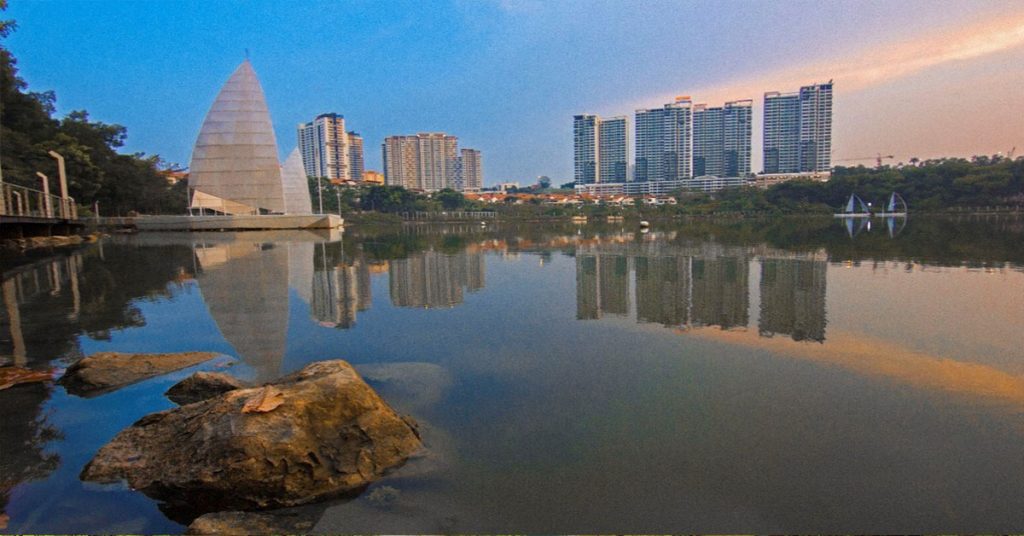
Sunway South Quay Lake
Our modelling works conducted in 2018 tells us that the average yearly incoming water to the lake, which is inclusive of direct rainfall as well runoff through drains is ranging between 0.23 to 0.74 million cubic metres for a dry year while it would be between 0.64 to 2.30 million cubic metres for a wet year. In layman’s terms, it is approximately between 230 million and two billion litres of water available in our lakes. With an exorbitant amount of water, it would be wise to put it to good use.
Thankfully, our visionary – Tan Sri Dr. Jeffrey Cheah has done just so.
These two lakes serve as catchment areas for the city. According to Ireland’s Environment Protection Agency, living in a catchment that have a healthy water supply can support society to have a better quality of life. A healthy water catchment provides high-quality water and supports the livelihood of the city in areas highlighted by the United Nations.
In line with our “Build-Own-Operate” model, it contributes to the city in four different ways – drainage system, water supply, recreational activities for citizens, as well as the city’s environment.
DRAINAGE SYSTEM
To further elaborate on how these lakes serve to improve water security, these lakes serve mainly as catchment areas – the final destination for some of the local drains and thus contribute to the drainage system of the city. The drained catchments to these lakes are highly urbanised; therefore, playing an important role in retaining the surface run-off of such urbanised land use. In layman’s terms, the lakes are contributing to stormwater management in the township and helps prevent local floods.
WATER SUPPLY
Another important facet of water security is constant water supply towards our residents and tenants residing in Sunway City Kuala Lumpur. To ensure that, the Group has been investing in water security and are taking steps to reduce water wastage.
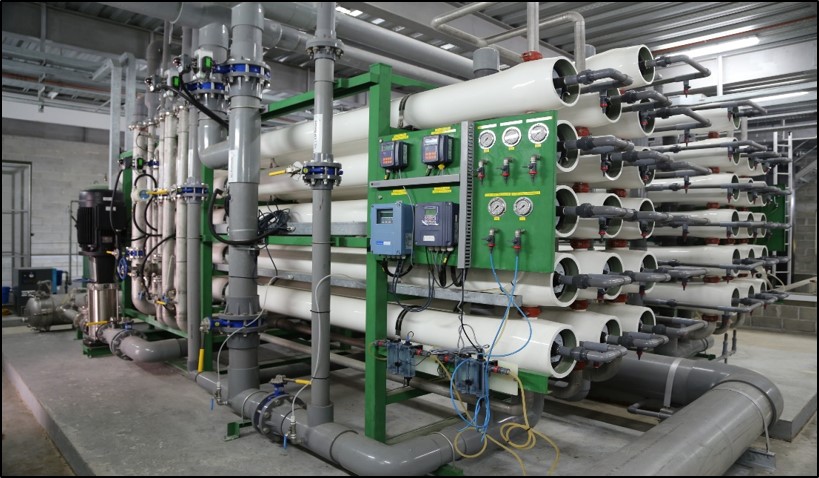
Water treatment plant
Sunway recently invested in a water treatment plant in Klang Valley, a water-stressed area, making it possible to provide 8.5 million litres of water a day from the existing mining lakes to selected commercial buildings within Sunway City Kuala Lumpur as well as harvesting rainwater for cleaning and landscape uses. Based on the World Health Organisation’s recommendation of 165 litres per person per day, this amount is sufficient to serve water consumption needs of about 51,500 people.
This not only ensures water security for the residents of Sunway City Kuala Lumpur, but further supports the city’s infrastructure and value creation by minimising disruptions to our businesses and operations and leverage Build-Own-Operate business model to increase community resilience.
This is especially helpful during water cuts; Sunway’s water treatment plant has helped the city’s commercial assets maintain continuous water supply. To better illustrate, all hotels, restaurants, universities and malls of Sunway City Kuala Lumpur were assured of a safe supply of water during that period, allowing business to continue its day-to-day operation without hassle.
RECREATIONAL ACTIVITIES FOR CITIZENS
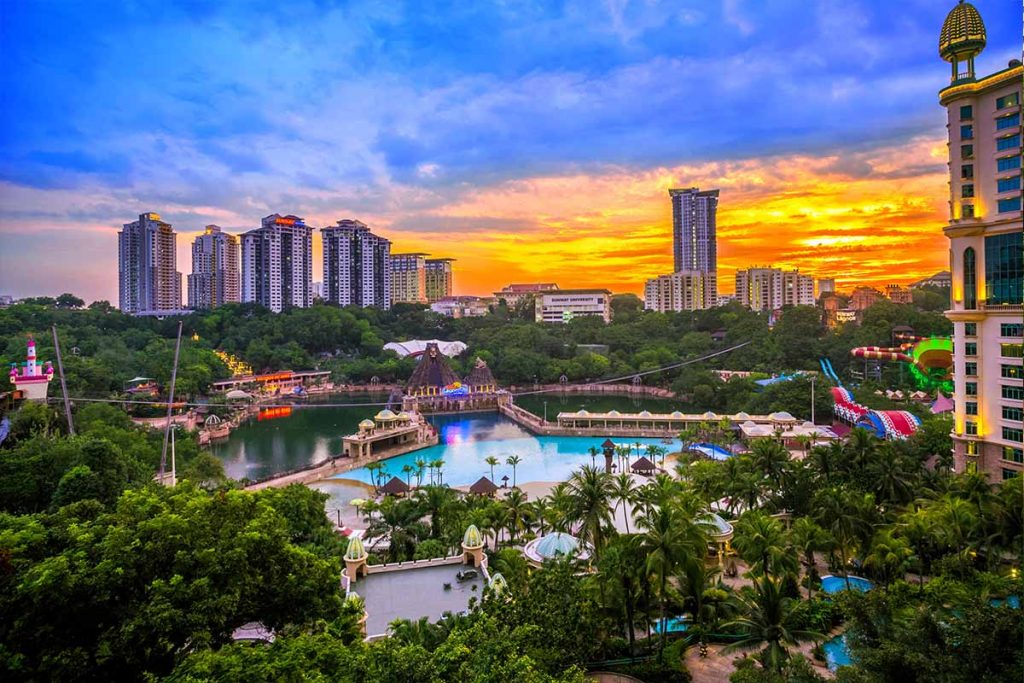
Our lakes are not only purposed for the city, but for the citizens to thrive and enjoy from its uses as well.
Sunway South Quay is home to the South Quay Princess – a 77-foot luxury yacht, able to accommodate 30 people. The yacht can be rented by the residents around Sunway to host parties or business events
On the other side of the pond, Sunway Lagoon also has its own princess – Pinky, Sunway Lagoon’s white-handed gibbon princess living on a man-made Upcycled Floating Island.
In addition, the lake was initially classified as “mesotrophic”, meaning that it has a strong concentration of nutrients, such as phosphates, nitrates and other chemicals. This overload of nutrients fuel explosive weed growth and harmful algal blooms, making it more vulnerable to stress and higher risk of being polluted, in addition to being uninhabitable for fishes.
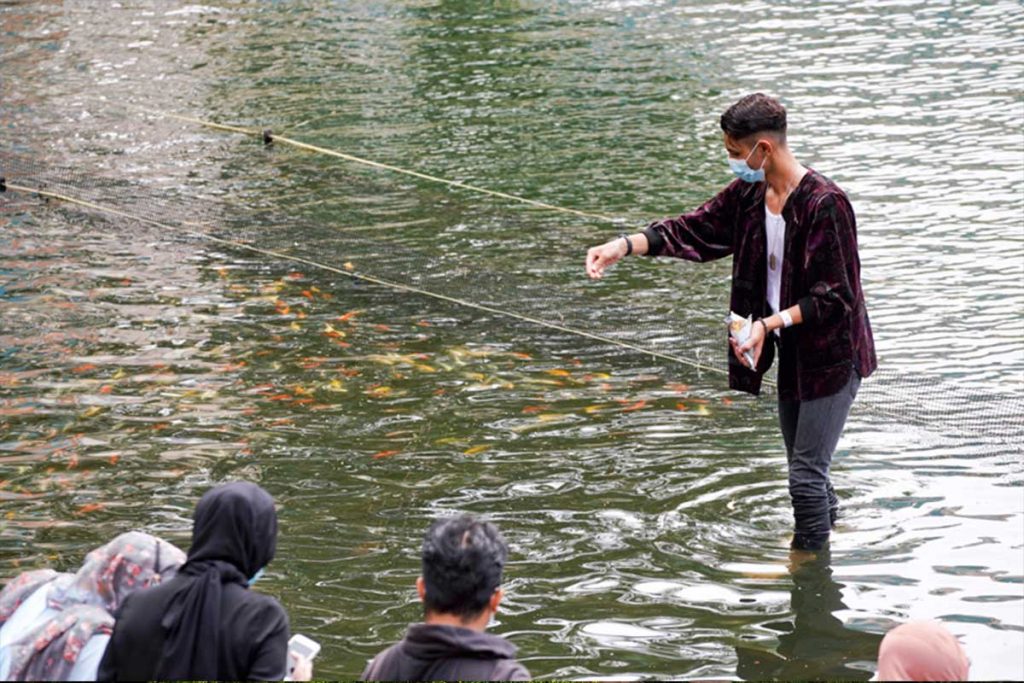
Credit: VisionKL
However, we have made efforts to recondition the lake with the use of innovative diffuser technology. This technology adds compressed air into the bottom of the lake whilst dosing beneficial bacteria and enzymes. It now hosts a small ecosystem of fishes in our lake!
ENVIRONMENT OF THE CITY
As our lakes are part of the natural foundation that make up this city, they have also contributed to the environment – in line with the UN-SDGs of a more sustainable earth.
Firstly, with the cooling mechanism of the lake water body from our two lakes acting as a giant air-conditioner, it can influence the surrounding environment and its micro-climate. In addition to a variety of our other initiatives such as green buildings and plant nurseries – a combination of these factors have contributed to the enhancement of the city’s micro-climate.
To top it all off, both are lakes have implemented Water Sensitive Urban Design (WSUD) components.
Called natural bio-filters – this bio-filtration system uses natural plants in our retention ponds in the South Quay site. Acting as “chemical buffer chambers”, they act as a natural filter for any pollutants that come into the river, such as sand or dirt from ground water that seeps into the rivers. This filter also sustains stormwater quality management through nature-based solutions.
The WSUD infrastructures are sustainable solutions for preventing the pollutants generated in an urban landscape from entering to the lake. This not only minimise the treatment costs, but also maintain the quality of the water safe for potential recreational activities. The future plans for revamping the existing ponds towards a more sustainable design will also contribute to the overall sustainability of the system.
OTHER INSTANCES OF WATER SECURITY AT SUNWAY CITY KUALA LUMPUR.
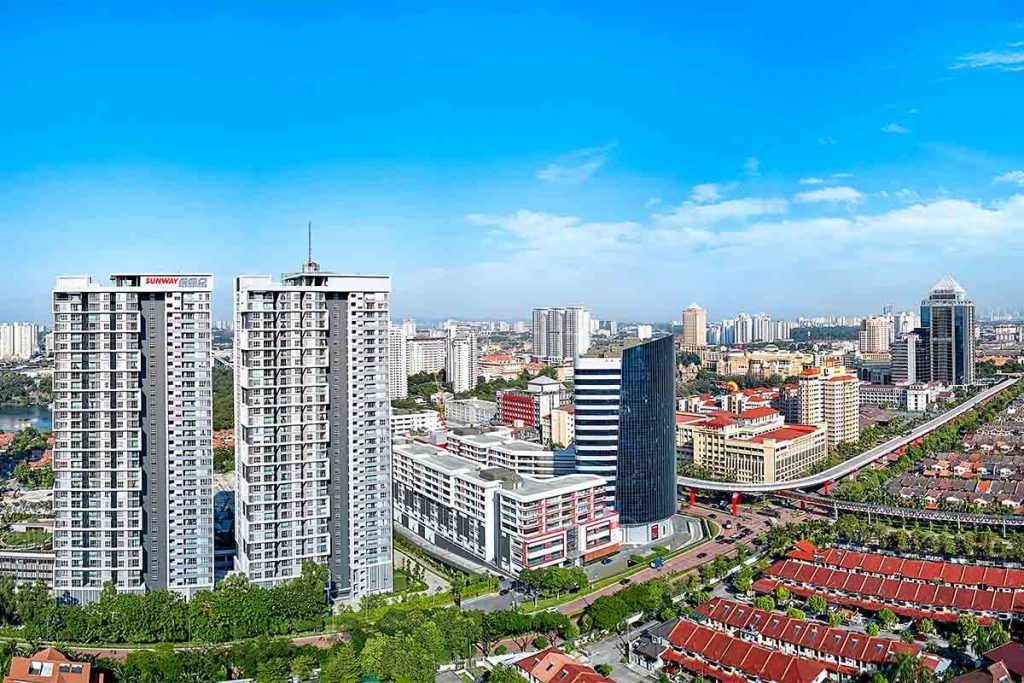
Most of our commercial buildings at Sunway City Kuala Lumpur are certified “Green” by Green Building Index (GBI), Malaysia’s industry recognised green rating tool for buildings to promote sustainability in the built environment. This Index is also inclusive of how we manage water within our buildings.
To illustrate on why we have been certified as such, our certified buildings are equipped with efficient fittings which are certified under water efficiency products labelling scheme, in addition to a host of other features such as water sub-meters to monitor water usage, utilising non-potable water which includes rainwater harvesting for landscape irrigation and to better cultivate the flora and fauna of the city, sowing the seeds for drought-tolerant plants that require minimal irrigation, which in turn help the eco-system in terms of cooling mechanism of the city, and the usage of non-chemical water treatment to build cooling towers.
In addition to that, we have also installed rainwater harvesting tanks in several of our properties as a water recycling strategy. The collected rainwater can also be used for watering and cleaning the landscapes that beautify Sunway City Kuala Lumpur. To put things into perspective, these tanks collect about 16,718,000 litres of water, equivalent to six and a half Olympic size swimming pools!
WHILST OTHER TAPS RUN DRY, OURS KEEP FLOWING
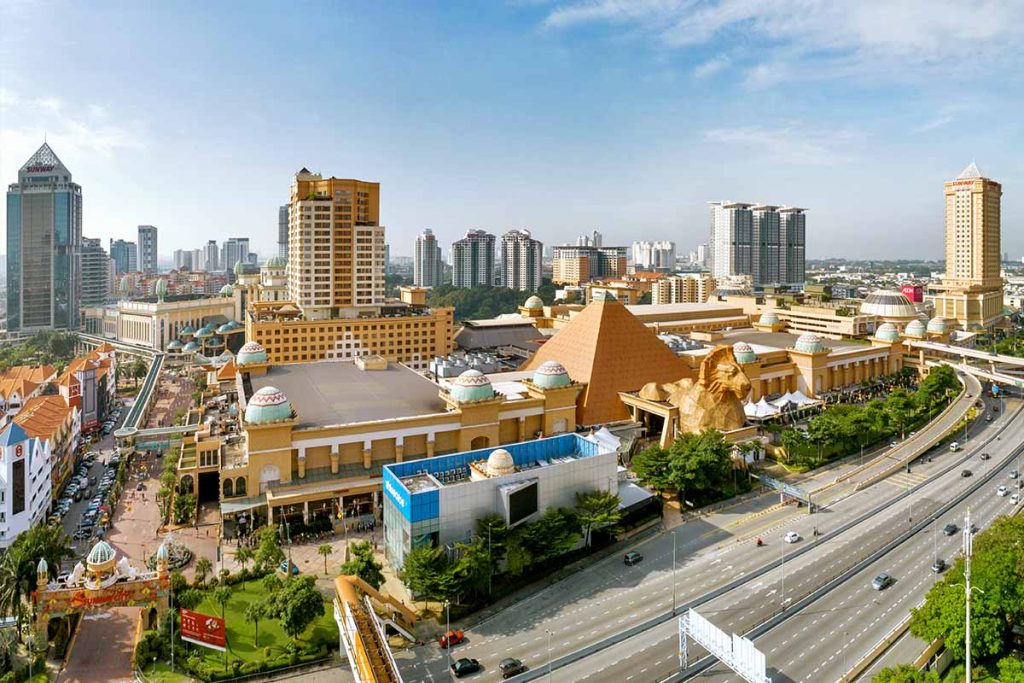
Water security equals sustainable business.
Whilst Sunway has focused on a host of trends involving education, city development, healthcare, among others, sustainability has always been at the forefront of all that we do. Stretching back to 1974 during the conception of Sunway City Kuala Lumpur, Tan Sri Dr. Jeffrey Cheah AO has embedded sustainability in his business practices, wanting to prove that profitability and sustainability are not mutually exclusive.
Water security does not only ensure a more sustainable living environment for the citizens of Sunway City Kuala Lumpur, but it also establishes a foundation for value creation and significantly boost revenue.
In almost every industry and business across the world, water plays a vital role in their business model. However, as water is seen by many as an ever-flowing resource, companies often take it for granted. The results of water mismanagement can be catastrophic and thus, a huge loss of profit.
Citing examples from across the world – in 2004, a Coca-Cola plant in India was forced to shut down due to water shortage. In another example, the American agribusiness firm – Bunge, suffered a quarterly loss of 56 million US dollars in its sugar and bioenergy segments due to drought in 2010.
In terms of substandard water drainage systems, Thailand floods in 2011 harmed 160 companies in the textile industry and halted nearly a quarter of the country’s garment production, increasing global prices by 28%.
With 13 business divisions under the portfolio of Sunway, any water disruption can prove critical and the bottomline can take a direct hit. Thanks to the vision of Tan Sri Dr. Jeffrey Cheah AO, our water management systems has ensured that our businesses ranging from Sunway Lagoon, our hotels, properties, offices, malls and universities, as well as our tenants in the city will not have to experience disruption towards their businesses, making it a prime choice to commence your business or reside in Sunway City Kuala Lumpur.
WATER SECURITY IS IN OUR VEINS
A wise man once said, “our rivers have become more than an amenity, but also a treasure.”
Based on our stakeholder engagement survey, water security has been identified by our stakeholders as one of the top material matters. We have continuously and consistently invested in water security initiatives such as water treatment plants and lake revamping designed to reduce water wastage, improve water recycling and localisation, allowing for stronger water security for tenants and residents alike. However, despite having a comprehensive list of initiatives, rest assured that our efforts do not end here. We strive to be a model for water sustainability, incorporating the UN-SDGs into our business model to create value, not just in terms of revenue, but also for the planet and its people.








